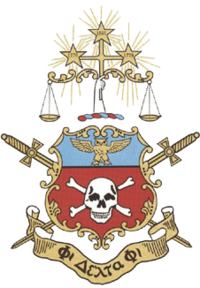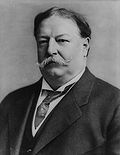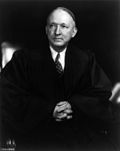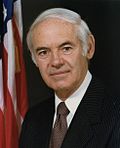Phi Delta Phi
| Phi Delta Phi | |
|---|---|
| ΦΔΦ | |
 | |
| Founded | December 13, 1869 University of Michigan Law School |
| Type | Honor society (formerly professional fraternity until 2012) |
| Affiliation | Independent |
| Former affiliation | PFA |
| Status | Active |
| Scope | International |
| Motto | Friends of Justice and Wisdom |
| Member badge |  |
| Colors | Garnet and Pearl Blue |
| Symbol | Owl and Skull |
| Flower | Jacqueminot rose |
| Publication | The Brief |
| Chapters | 131 |
| Members | 200,000+ lifetime |
| Headquarters | 1426 21st Street NW Washington, D.C. 20036-5947 United States |
| Website | www |
Phi Delta Phi (ΦΔΦ), commonly known as Phid or PDP, is an international legal honor society and the oldest legal organization in continuous existence in the United States. Founded in 1869 at the University of Michigan as a professional fraternity, it was designated as an honor society in 2012. It is considered among the world's most prestigious professional organizations.[citation needed]
Phi Delta Phi is organized by two branches: legal honor societies and pre-law societies. The legal honor societies, called Inns, are located at law schools. The pre-law societies, called Halls, are for undergraduate membership at U.S. colleges and universities.
With a total membership of over 200,000 people, members of Phi Delta Phi include five U.S. presidents, two U.S. vice presidents, 14 Supreme Court justices, and numerous members of Congress, Cabinet members, and ambassadors.
History
[edit]
Phi Delta Phi was founded on December 13, 1869 at the University of Michigan Law School by John M. Howard, a first year law student. Howard was a graduate of Monmouth College and member of Phi Gamma Delta, referred to as Fiji. His initial intent was to found a chapter of Fiji at Michigan, but he did not follow through with the plan because of the large number of chapters already in place on the campus. Howard instead turned his efforts toward founding a fraternity devoted purely to students of the legal profession.[1][2]
Phi Delta Phi Inns have occasionally leased or owned residential buildings or secured meeting spaces, often adjacent to law libraries. During World War II, when law school admissions enrollments virtually ceased, all of the Inns remained active on a restricted basis.
The first international unit of the fraternity was the Weldon Inn, chartered in 1925 at Dalhousie University in Nova Scotia. The first unit in Mexico, the Velasco Inn, was chartered in 1973 at the Escuela Libre de Derecho, in Mexico City.[1] The first unit in Germany, the Roman Herzog Inn, was chartered in 2006 at the Bucerius Law School, in Hamburg.
After 140 years of operation as a professional fraternity, the fraternity was designated as an honor society in 2012.[3] In the same year the fraternity began chartering Halls as undergraduate pre-law chapters.[4]
Chapters
[edit]Inns
[edit]Phi Delta Phi has 131 active chapters known as Inns. Each Inn is named for a noted jurist or member of the bar.[1][5]
Some of the most notable chapters in the U.S. include the founder, Kent Inn at Michigan, Gibson-Alexander Inn at Penn, Story Inn at Columbia, Choate Inn art Harvard, Waite Inn at Yale, Conkling Inn at Cornell, Miller Inn at Stanford, Douglas Inn at the University of Chicago, Minor Inn at Virginia, Malone Inn at Vanderbilt, Vance Inn at North Carolina, Booth Inn at Northwestern, Hughes Inn at Duke, Scott Inn at Georgetown, Jones Inn at the University of California, Berkeley, Ruffin Inn at Wake Forest, and Lamar Inn at Emory.
Phi Delta Phi Inns are also located in Canada, Mexico, Germany and Poland. Notable international Inns include Santos Theriot Inn at University of Monterrey, Cabrera Inn at Universidad Iberoamericana, Palacios Macedo Inn at Instituto Tecnológico Autónomo de México, Martland Inn at University of Ottawa, Weizsäcker Inn at University of Tübingen, and Hoffman-Becking Inn at Goethe University Frankfurt.
Halls
[edit]The honor society has numerous undergraduate chapters, called Halls. Some of the Halls are located at the University of Michigan, Washington University in St. Louis, Penn State University, University of Illinois Urbana Champaign, University of South Carolina, and Loyola Marymount University.
Notable members
[edit]
Over more than one and a half centuries, Phi Delta Phi members have contributed significantly to various areas, specifically the law and politics. Phi Delta Phi's affiliates include five U.S. presidents, two U.S. vice presidents, and fourteen Supreme Court justices.
- Notable Phi Delta Phi members include:
- 25th President of the United States William McKinley
- 26th President of the United States Theodore Roosevelt
- 27th President of the United States William H. Taft
- 32nd President of the United States Franklin D. Roosevelt
- 38th President of the United States Gerald Ford
- United States Senator Robert F. Kennedy
- 42nd Vice President of the United States Walter Mondale
- 44th Vice President of the United States Dan Quayle
- Associate Justice of the United States Thurgood Marshall
- Associate Justice of the United States Sandra Day O'Connor
- Chief Justice of the United States Earl Warren
- Chief Justice of the United States William Rehnquist
- Associate Justice of the United States Anthony Kennedy
- Associate Justice of the United States Antonin Scalia
- Chief Justice of the United States Charles Evans Hughes
- Associate Justice of the United States Benjamin N. Cardozo
- Associate Justice of the United States Owen Roberts
- Associate Justice of the United States Hugo Black
- Associate Justice of the United States Lewis F. Powell, Jr.
- Associate Justice of the United States Byron White
- Associate Justice of the United States John Paul Stevens
- 43rd Speaker of the U.S. House of Representatives Sam Rayburn
- United States Senator Howard Baker
- United States Senator Birch Bayh
- United States Senator Daniel Inouye
- United States Senator Patrick Leahy
- 74th United States Attorney General William French Smith
- 75th United States Attorney General Edwin Meese
- 31st Governor of Illinois Adlai Stevenson II
- Solicitor General of the United States Robert Bork
- Solicitor General of the United States Ken Starr
- Watergate scandal special prosecutor Leon Jaworski
- 38th Indiana Attorney General Pamela Carter
References
[edit]- ^ a b c Anson, Jack L.; Marchenasi, Robert F., eds. (1991) [1879]. Baird's Manual of American Fraternities (20th ed.). Indianapolis, IN: Baird's Manual Foundation, Inc. p. V-39–41. ISBN 978-0963715906.
- ^ York, Kenneth H. (1952). "Legal Fraternities" (PDF). Michigan Law Review. 50 (7). The Michigan Law Review Association: 1047–56. doi:10.2307/1284939. JSTOR 1284939. Retrieved 27 October 2021.
- ^ Explained more fully in the Fraternity's historical record, accessed 24 oct 2021.
- ^ The Three Major Legal Fraternities and Why You May Want to Join One
- ^ Noted in the Fraternity's List of Chapters, accessed 24 Oct 2021.


 French
French Deutsch
Deutsch































